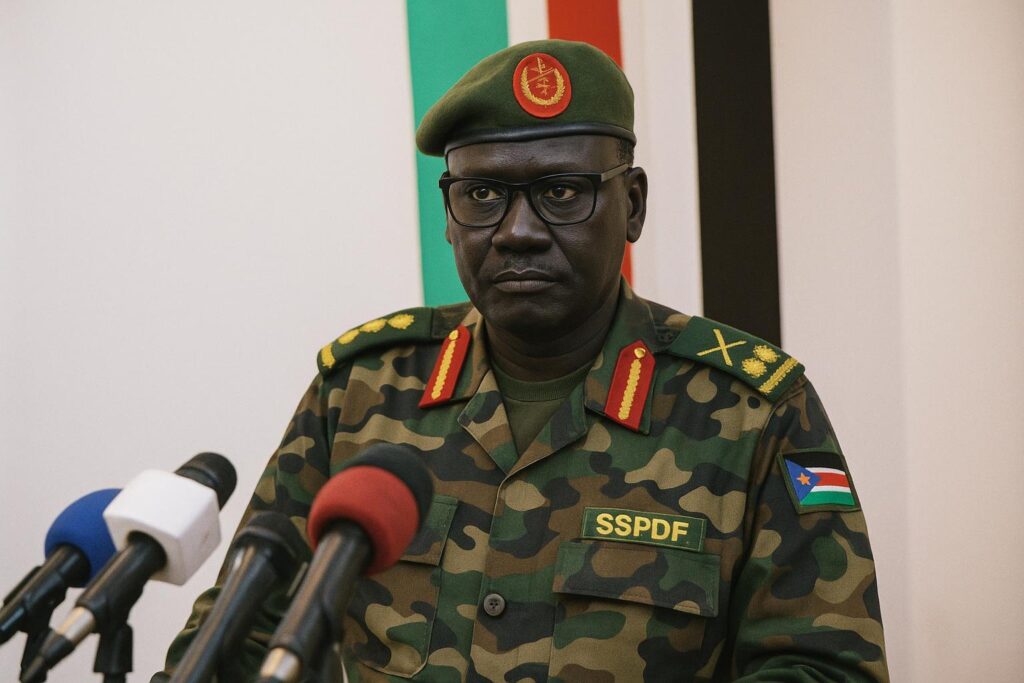Surprise Integration Order
South Sudan’s top commander has stunned observers by directing Red Belt vigilantes, long viewed with suspicion in Jonglei State, to enlist with the national army at Malual-chat base in Bor, signalling a hard reset in the security equation (Eye Radio).
Army spokesperson Major General Lul Ruai Koang warned that members declining the call will be disarmed by force, underscoring the high stakes attached to the integration and the government’s determination to monopolise armed power.
Roots of the Red Belt Phenomenon
Emerging during waves of cattle rustling and inter-communal clashes, Red Belt branded itself as a community shield, garnering youthful support amid gaps in state protection.
Local officials in Bor, however, claim the outfit morphed into an anti-government militia after a recent confrontation that left security personnel dead.
Community vs State Narratives
Red Belt leaders reject the rebel label, insisting their fighters merely patrol grazing corridors and roadways that have witnessed recurring raids.
The army’s integration order, they say, risks diluting grassroots vigilance; yet state officials counter that parallel armed structures erode rule of law and hamper peace processes tied to the Revitalized Agreement.
The Wider Disarmament Drive
Simultaneously, the SSPDF has given youth in Warrap State three weeks to surrender illicit weapons, employing the same language of voluntary compliance backed by the threat of force.
Opposition troops aligned to SPLA-IO have also been summoned for the second phase of unified training, indicating that Juba wants momentum on delayed security arrangements.
Regional Repercussions
Security analysts in Nairobi observe that absorbing vigilantes can curb episodic violence but may strain already tight defence budgets and complicate command cohesion.
For neighbouring Congo-Brazzaville, which monitors instability along the broader Central African corridor, developments in Bor offer lessons on pre-emptive integration over confrontation.
Looking Ahead
Whether Red Belt members embrace the olive branch or test the army’s resolve will shape security trends as elections approach in South Sudan.
What is clear is that state authorities are signalling a zero-tolerance stance toward non-state arms, hoping to transform vigilantism into formal service.


